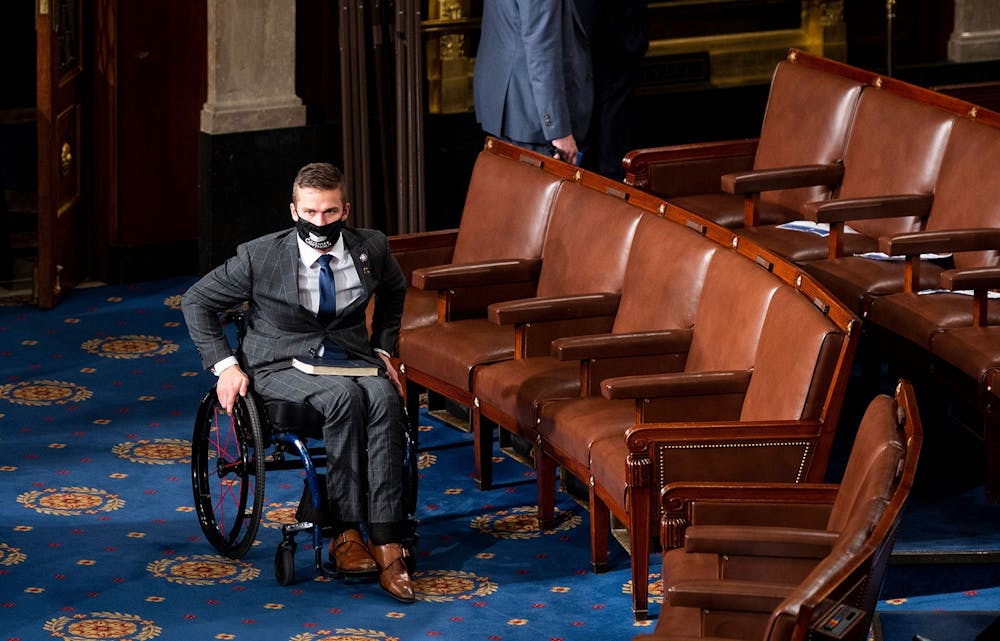Content warning: This article contains mentions of sexual assault.
Sexual assault is an epidemic plaguing college campuses across the country. Women at universities face a disproportionately high risk of assault and harassment, and UNC’s campus is no different.
University administrations work tirelessly to keep these incidents out of the headlines, but the newly resurfaced sexual harassment allegations against N.C. Rep. Madison Cawthorn demonstrate how pervasive the issue of sexual assault is at our universities.
The 2020 election season brought many new names to politics — one being Cawthorn, a Republican from North Carolina’s 11th District. Recently, Cawthorn has sparked controversy on the national stage following multiple accusations of sexual harassment while he was a student at Patrick Henry College.
Several people have come forward and recounted Cawthorn's "aggressive and misogynistic" behavior. In fact, his harassment was allegedly so severe that resident advisers at Patrick Henry College even warned students to avoid Cawthorn.
It may be tempting to view this behavior as an isolated incident, amplified by the political status of the perpetrator, but that is not the case. On college campuses across the country, people of all genders are victims of harassment and assault — and often have no recourse. University administrators, in an attempt to preserve their own reputations, are largely unwilling to uphold justice and punish offenders.
At UNC, 35 percent of undergraduate women are victims of sexual harassment, and more than a third are victims of sexual assault. Students seeking justice have been long met with resistance from UNC's administration, who refused to release disciplinary records related to sexual assault on campus.
With the issue amplified by fraternities and party culture on campus and an administration unwilling to provide redress for victims, the U.S. Department of Education found UNC in violation of Title IX in 2018.
Since then, the administration has fought legal decisions that would require increased transparency about how it disciplines perpetrators of sexual assault. This battle persisted until the N.C. Supreme Court denied UNC’s appeal, requiring disciplinary records to be released.




